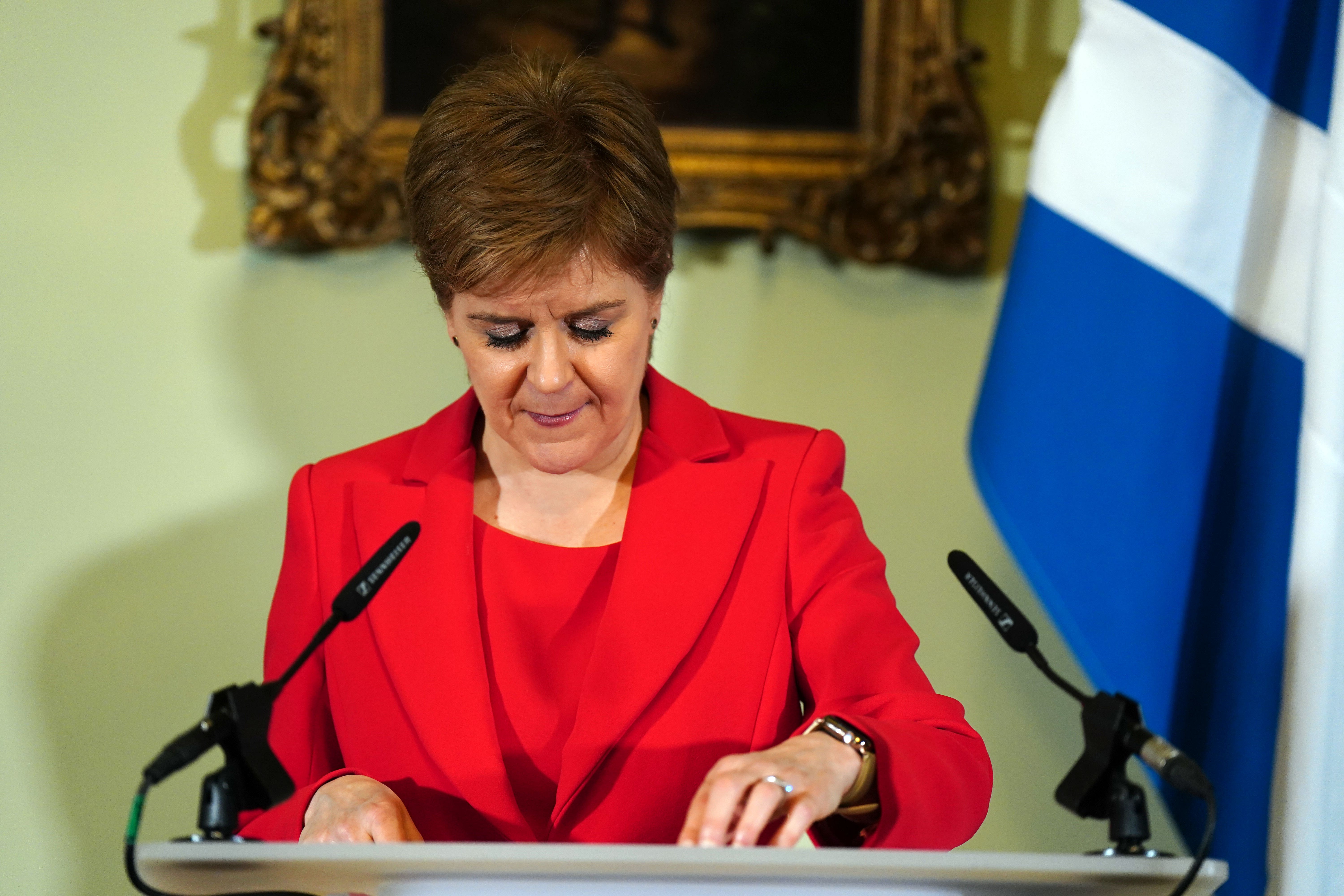Why has Nicola Sturgeon resigned?
‘Short-term pressures’ not the reason for quitting, says SNP leader
Your support helps us to tell the story
From reproductive rights to climate change to Big Tech, The Independent is on the ground when the story is developing. Whether it's investigating the financials of Elon Musk's pro-Trump PAC or producing our latest documentary, 'The A Word', which shines a light on the American women fighting for reproductive rights, we know how important it is to parse out the facts from the messaging.
At such a critical moment in US history, we need reporters on the ground. Your donation allows us to keep sending journalists to speak to both sides of the story.
The Independent is trusted by Americans across the entire political spectrum. And unlike many other quality news outlets, we choose not to lock Americans out of our reporting and analysis with paywalls. We believe quality journalism should be available to everyone, paid for by those who can afford it.
Your support makes all the difference.Nicola Sturgeon stunned both Holyrood and Westminster with the shock announcement that she is standing down as SNP leader and Scotland’s first minister after eight years.
“In my head, and in my heart, I know that the time is now, that it’s right for me, for my party and my country,” she told a hastily arranged press conference on Wednesday morning.
Ms Sturgeon, who has been under huge pressure over her particular approach to trans rights, said her decision to quit was not a “reaction to short-term pressures”.
Follow our live blog for latest updates on Sturgeon’s resignation
She also said her resignation now “frees the SNP” to choose the path it believes to be the right one on the issue of Scottish independence without worrying about “the perceived implications for my leadership”.
The SNP chief suggested that she had been “wrestling” with the decision for several weeks now, saying she had had to consider the “physical and mental impact” of leading the country after being in charge since 2014.
Ms Sturgeon was reluctant to be drawn on the specific reasons behind her decision to quit – but it is thought that November’s Supreme Court ruling, which dashed hopes of a second independence referendum without Westminster’s approval, came as a major blow.
She was heavily criticised for initially vowing to turn the next general election into a de facto referendum on Scottish independence – with unionist parties accusing her of being completely “out of touch” with public opinion.
The SNP boss then disappointed many nationalists by dropping the firm pledge, instead deciding to put various options to the party membership at a special conference due to be held in March, including making the next Holyrood election a de facto independence vote.
But the idea remains unpopular. Earlier this week, a poll found that two-thirds of Scottish voters are opposed to the idea of a general election being used as a de facto vote on independence.
Ongoing uncertainty over the strategy for the independence movement had raised questions about whether Ms Sturgeon was the one to lead the SNP through the next phase of its fight for separation from the UK.
Having led the party through the aftermath of the first referendum in 2014, put the agenda on hold during the Covid crisis, and overseen the failed legal battle for a vote, it appears the first minister felt she had taken the cause as far as she was able to.

Although she insisted that the trans self-identification row “wasn’t the final straw” that led to her exit, the huge controversy over her proposed legislation on the issue, which would have made it easier for Scots to change gender, clearly took its toll.
Scotland’s first minister has been under huge pressure over trans rights since Isla Bryson – convicted of raping two women while she was a man called Adam Graham – was initially sent to a women’s prison.
Ms Sturgeon was forced into a U-turn as she confirmed that the rapist would be moved to a male prison. But she stuck by her stance on self-ID, and threatened legal action over the decision by Rishi Sunak’s government to block the legislation passed at Holyrood.
Support for independence, the SNP and Ms Sturgeon all dropped sharply amid criticism over the “fiasco”. Jim Sillars, a former deputy leader of the party, said it would be Ms Sturgeon’s equivalent of Margaret Thatcher’s disastrous “poll tax”.
But Ms Sturgeon has hinted for some time that she was considering a future beyond Scottish politics. She said she did not “fear” life after politics, talking about wanting to work with young people and write a memoir.
Ms Sturgeon said on Wednesday that she was looking forward to spending more time with her family, and indicated that she would continue on the back benches as an MSP “until, certainly, the next election” for Holyrood, which is due to take place in 2026.






Join our commenting forum
Join thought-provoking conversations, follow other Independent readers and see their replies
Comments